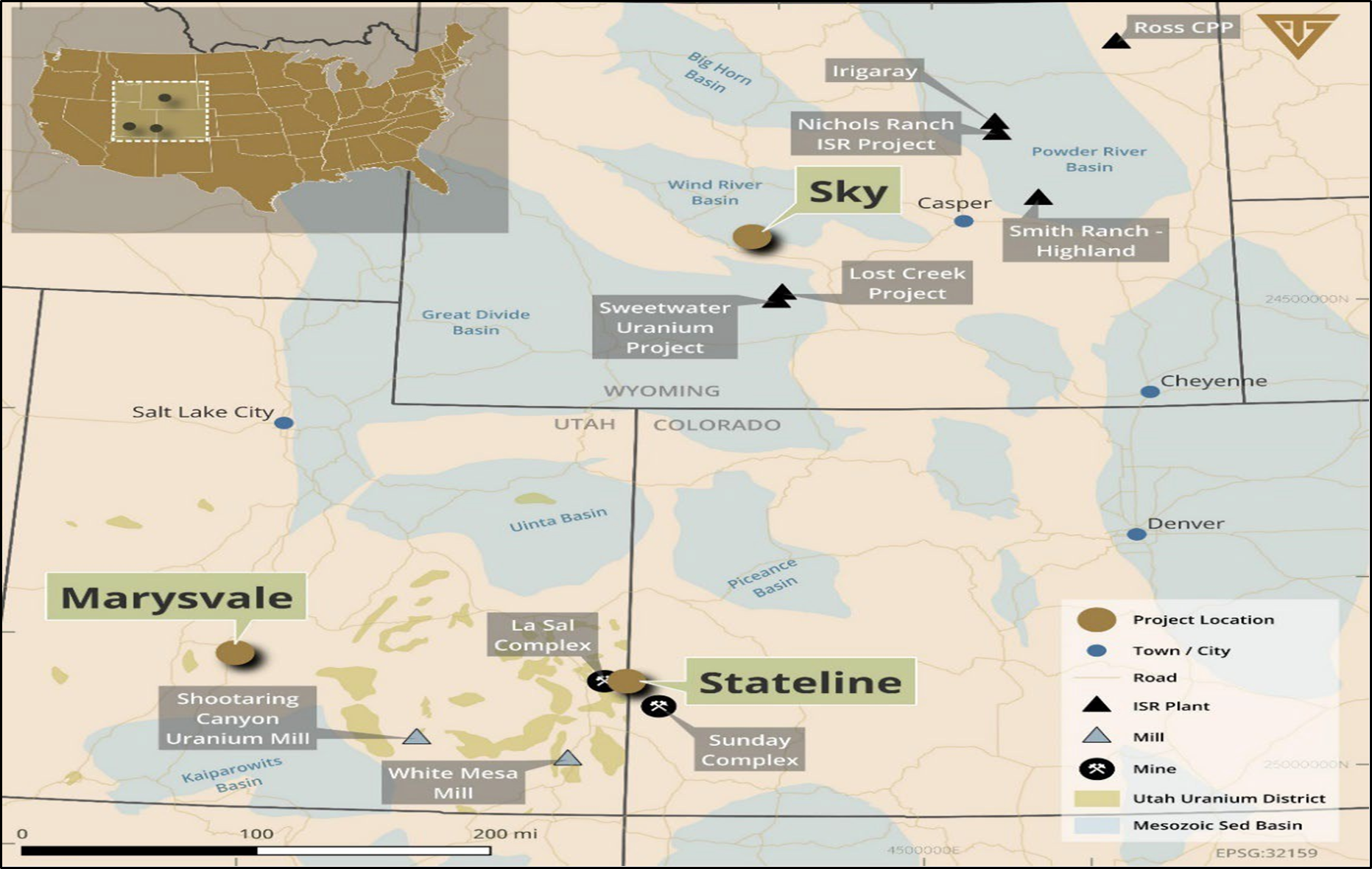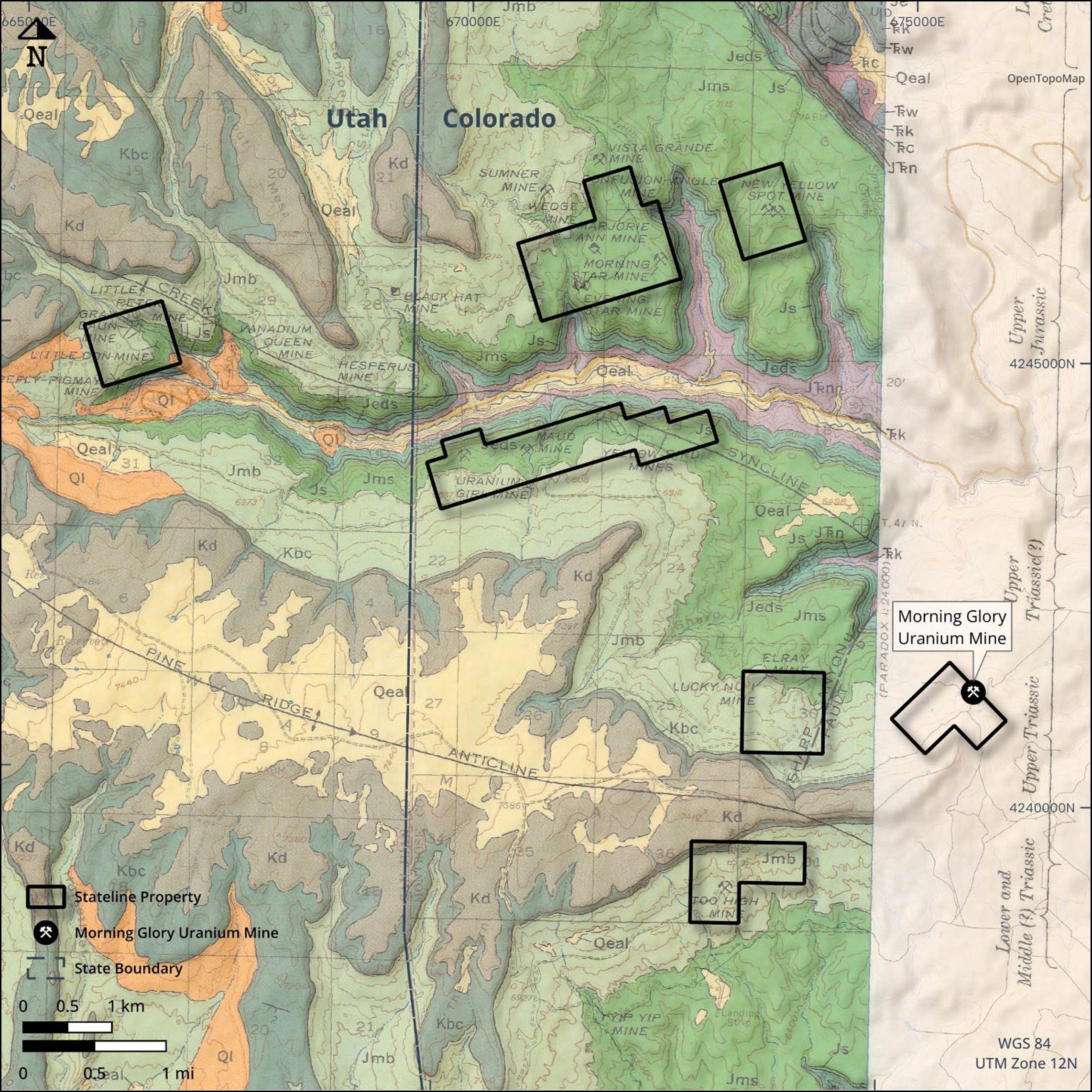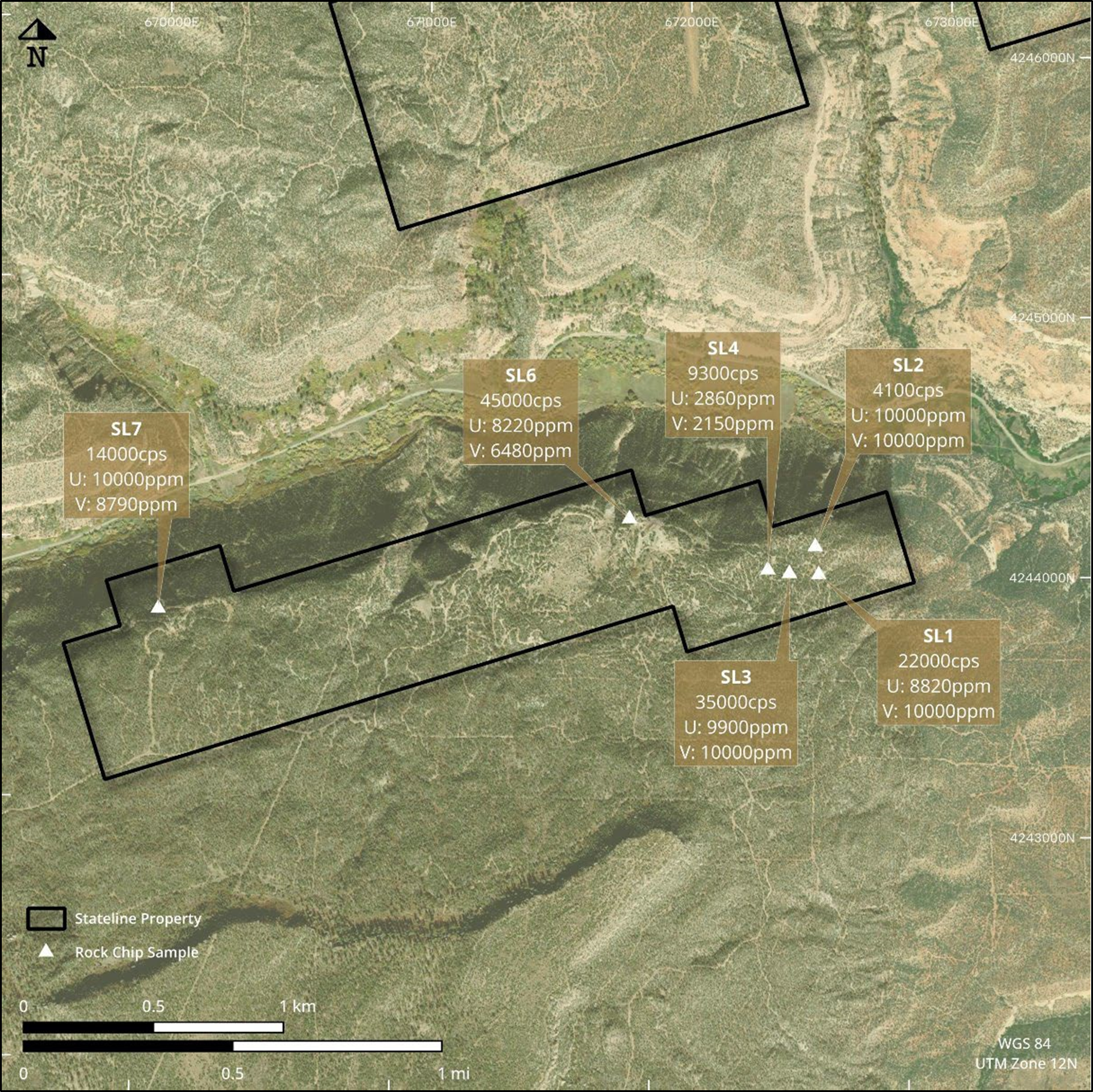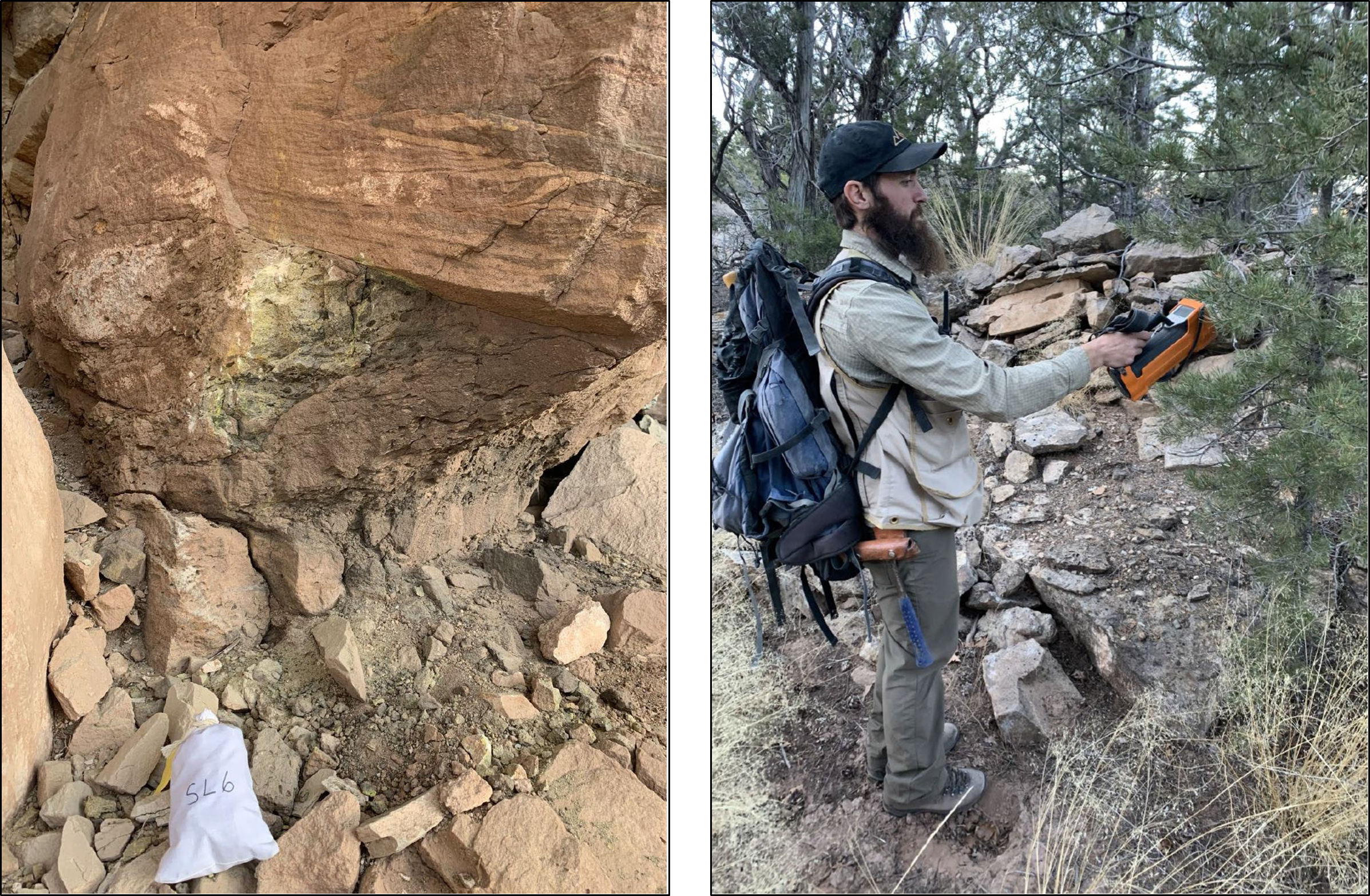Highlights
- TONOGOLD advises the Term Sheet entered into with JAG Minerals Pty Ltd ("JAG") on March 25, 2024, has been amended, extending the Exclusivity Period to July 30, 2024.
- Scintillometer readings up to 45,200cps, with assays revealing >1% Uranium and >1% Vanadium.
- Seven targeted samples taken from zones with visible carnotite and uraninite, primarily from in-situ sources, will provide a crucial basis for detailed analysis and aid in planning drilling operations.
WOODLAND HILLS, CA / ACCESSWIRE / May 30, 2024 / TONOGOLD Resources Inc. (OTC PINK:TNGL) ("TONOGOLD" or the "Company") advises that it and its merger partner, JAG Minerals USA, Inc., have amended the Term Sheet dated March 25, 2024, to extend the Exclusivity Period by 35 days to July 30, 2024. This Extension will give the parties the ability to consummate the transaction as previously announced.
In addition, TONOGOLD and JAG have also released recent assay results from a sampling program at the Stateline Project. The project covers 2.75 mi² (7.2 km²) across seven strategic areas in the highly prospective La Sal Creek District, approximately 19 km from the La Sal Complex operated by Energy Fuels Inc.

Project Background
The Stateline claims were staked over several former uranium/vanadium mines in the La Sal Creek District, which were actively mined from 1947 to 1979. The Three Mile Island incident in March 1979 devastated the uranium ore market, leading to the abandonment of these mines. Historically, Vanadium (V2O5) was produced as a byproduct of uranium (U3O8) ores, with high vanadium content ranging from 1% to 3%, averaging around 1.5%, significantly higher than most North American V2O5mining plays.

_________________________________
1 Geology and uranium-vanadium deposits of the La Sal quadrangle, San Juan County, Utah, and Montrose County, Colorado, Carter, W.D., and Gualtieri, J.L. USGS, PP 508, 1965
Mapping Methodology
The mapping strategy at Stateline involves targeting areas with visible carnotite mineralization where scintillometer readings surpass 3000 cps, optimizing the search for high-potential uranium deposits. Scintillometer checks are routinely performed at 0.1-mile intervals, or more frequently in notable areas, focusing on geological units and historical mining structures like sealed adits, which are marked with brass caps for reference. Sampling primarily target areas with evident carnotite or uraninite in bedrock, avoiding less reliable float or tailings unless necessary. Most samples, numbering seven in total, were collected in-situ.Additionally, strike and dip measurements are taken at sites with clear bedding or jointing, aiding in understanding the host rock's structure to predict potential subsurface uranium sites for future drilling.
Mapping Assessment and Observations
Mapping results indicate two ore zones; the lower zone exhibits higher scintillometer readings, with values up to 45,200 cps, compared to 35,000 cps in the upper zone. Seven samples, labeled SL1-SL7 (see Figure 3) were taken across these zones, revealing multiple high-value locations within a 400-foot area.

The presence of carnotite near the Uranium Girl Mine and unexplored western claim areas suggests potential for extended ore zones. Additionally, anomalous readings up to 900 cps were detected in pinyon pines near exposed mineralization, pointing to a unique, yet unconfirmed, geological interaction that requires further study.
Sample Results
The recent sample analysis from our uranium exploration project highlights significant findings and key geological characteristics across several test sites, as detailed in Table 1.
Table 1: Sample Assay Results.

Comments for these samples are below:
SL1: High-grade, bright yellow carnotite interlayered with fine-grained, black rock at outcrop base.
SL2: Carnotite impregnated in silty sandstone, showing oxidized sediments and exposed bedding, near old workings.
SL3: Visible carnotite in an 18-inch zone of fine-grained sandstone interbedded with green mudstone; extensive area, suggesting potential below-surface extension.
SL4: Carnotite in fine-grained sandstone with thin beds, located in adit waste pile; notable for finding a significant bone piece.
SL6: High-grade, visible carnotite in fine-grained, reddish-brown sandstone near an old adit; extensive and highly radioactive area.
SL7: Composite sample from Uranium Girl Mine tailings, selected for higher grade material despite being less visually appealing.
These highlights demonstrate the promising nature of the uranium deposits in the area, with significant implications for further exploration and potential mining activities.

Figure 5 (right): Using the RS-125 to get elevated cps values on the tree for comparison against the surrounding counts
Future Plan
The Company is currently planning to complete diamond drilling and gamma logging of 15-20 holes, with accompanying geochemical analysis to adequately define disequilibrium across the deposit and test extensions. This will enable an updated NI43-101Technical Report.
TONOGOLD CEO William Hunter stated: "Both the Company and JAG are committed to completing the previously announced transaction and are working through the business and due diligence processes. JAG Minerals USA, Inc. has been active in expanding its Uranium and Vanadium claims in Wyoming, Utah and Colorado. Specifically focused on claims that have detailed historic Uranium data and / or published resources open for potential expansion. This development is very positive to the combined Company and the proposed Transaction between Tonogold and JAG Minerals as announced on April 11, 2024, remains unchanged."
Qualified persons
Mr Andrew Hawker,BSc. Geol, MAIG, is a member of the Australasian Institute Geoscientists, is a consultant to JAG Minerals USA, Inc. and is a Qualified Personas defined in National Instrument 43-101. Mr. Hawker is in charge of exploration programs and has reviewed and approved the technical information contained in this news release.
Enquiries
For further information, please contact:
William Hunter
Interim CEO Tonogold Resources Inc
M: +1 203 856 7285
E: [email protected]
SOURCE: Tonogold Resources, Inc.




